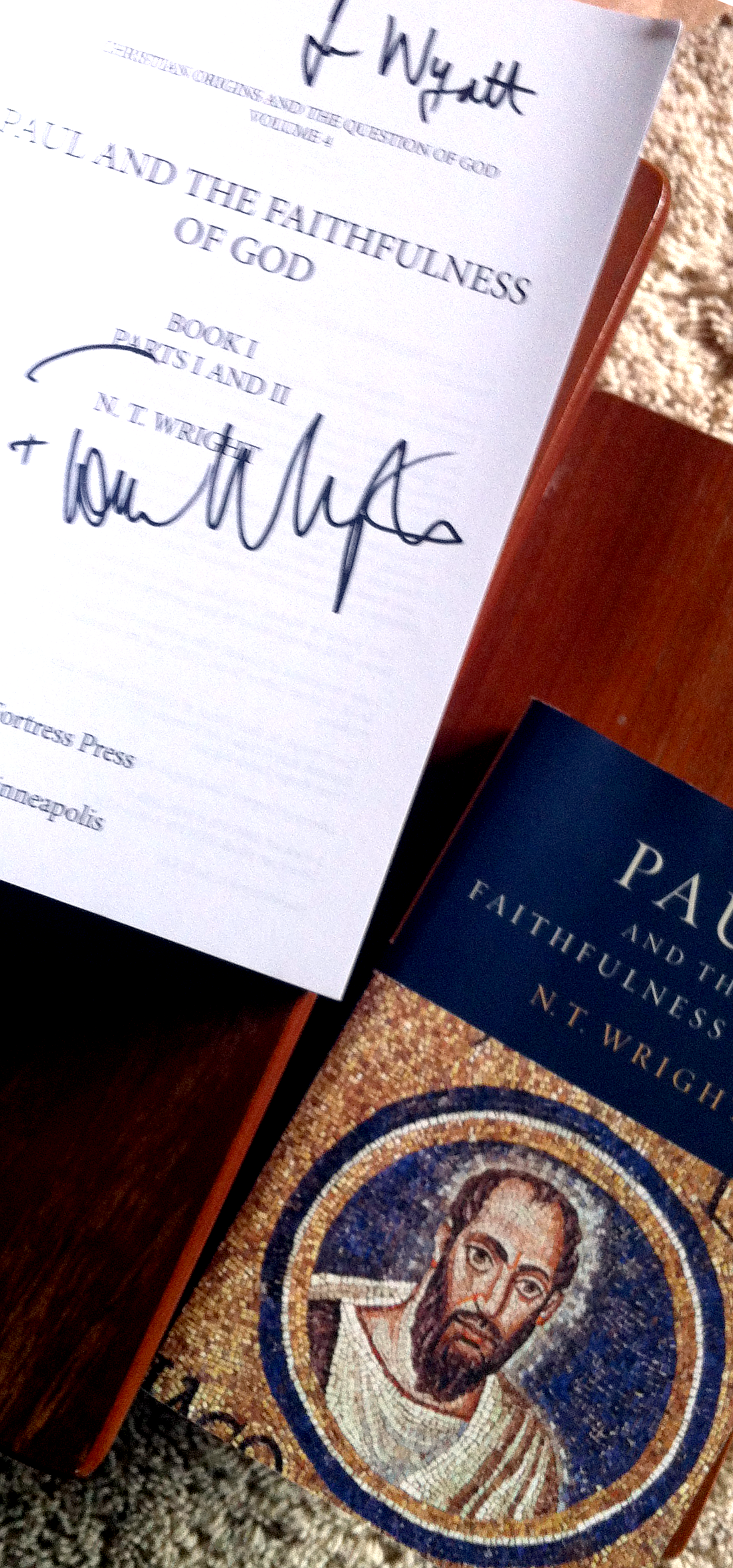N.T. Wright's latest and longest installment in his Christian Origins and the Question of God series is Paul and the Faithfulness of God, and this book contains a fascinating backtracking on the New Perspective on Paul.
In this following quotation, N.T. Wright admits that the Old Perspective on Paul proponents had some things right after all, that is, on the issue of sin. Wright does not concede that the New Perspective is wrong, but there is a bit of back stepping that is fascinating for all who have followed the New Perspective on Paul debate.
The problem with highlighting 'sin' in this way is that it might appear to offer a sigh of relief to the 'old perspective' on Paul. There we are (one can hear certain readers thinking): we were right all along! The problem is sin; the solution is salvation; it's taken a long time to get round the black and back to where we started, but since we're safely home let's not worry any more about these funny 'new perspectives'.
But to think like that would be to collude precisely with a diminished, individualized and often essentially Platonic vision of 'salvation', according to which all that has to happen is for 'souls' to be 'saved' out of this wicked world of space, time and matter, rescued from anything (including 'human works') which looks as though they might emphasize that physical world rather than the 'purely spiritual' one. Over against that shrunken, often Marcionite (sometimes indeed dangerously Manichean) worldview stands the whole argument of Romans 3:21-8:39, with its insistence that humans are made for 'glory', and that 'glory' means inhereting the whole creation as the human sphere of responsibility.
Paul's redefinition of 'salvation' does indeed radicalize the (from his point of view) somewhat shallow notion of 'sin' we find among many pre-Christian Jewish writings. The effect of this, however, is not to reinscribe a Platonic soteriology of 'saved souls', but to offer the diagnosis of the problem which has lain all along at the heart of the problem of the creator and the creation: that humans, designed to reflect God's glory and wise sovereignty into the world, have 'worshipped and severed the creature rather than the creator, who is blessed forever'. When humans are 'saved', rescued from sin and its effects and restored to their image-bearing, heart-circumcized, mind-transformed vocation, then, according to Paul, creation itself can and will be rescued from teh bondage to decay which has come about through the human derogation of duty. As for the humans themselves, they will be raised to new life as part of this larger scene, rescued from the death which was the natural entail of that sin. This is a much bigger picture than traditional western soteriology, whether catholic or protestant, liberal or conservative, has usually imagined. It is the picture which, in Israel's scriptures, has to do with the faithfulness of the creator to his whole world, the faithfulness of the covenant God to the promises he had made not only to his people but also through his people: in your family, all the families of the earth will be blessed.
Wright, N. T. Paul and the Faithfulness of God. Vol. IV. Minneapolis: Fortress, 2013. 754-55. Print. Christian Origins and the Question of God.




Leave a comment